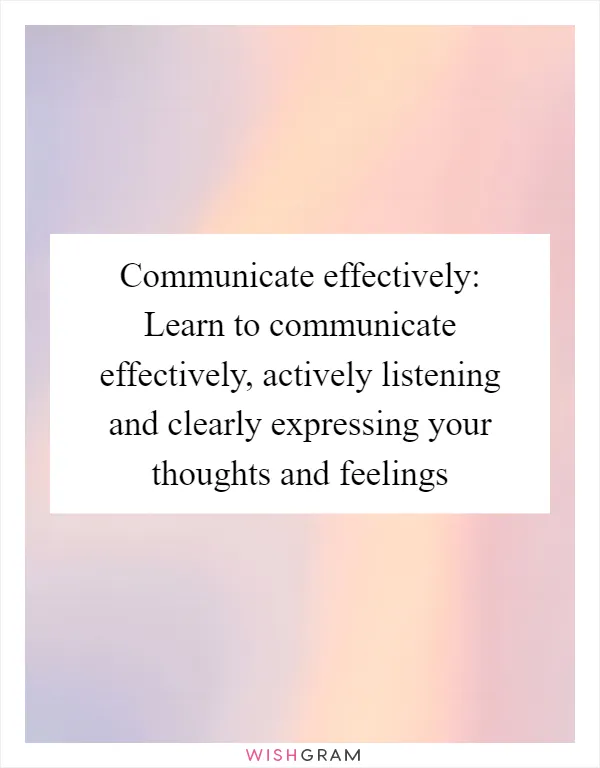Communicate effectively: Learn to communicate effectively, actively listening and clearly expressing your thoughts and feelings
Effective communication is a crucial skill that can greatly enhance your personal and professional relationships. By actively listening and clearly expressing your thoughts and feelings, you can ensure that your message is understood and that you understand others. In this message, we will explore the importance of effective communication and provide some tips to help you improve your communication skills.
Active listening is a fundamental aspect of effective communication. It involves fully focusing on the speaker, paying attention to both their verbal and non-verbal cues. By actively listening, you demonstrate respect and empathy towards the speaker, which encourages open and honest communication. To actively listen, maintain eye contact, nod or provide verbal cues to show your engagement, and avoid interrupting or formulating responses in your mind while the speaker is talking.
Clear expression of thoughts and feelings is equally important in effective communication. It involves articulating your ideas and emotions in a concise and understandable manner. To express yourself clearly, organize your thoughts beforehand, use simple and straightforward language, and provide specific examples or explanations when necessary. Avoid using jargon or complex terms that may confuse the listener. Additionally, be aware of your tone of voice and body language, as they can greatly impact how your message is received.
To further enhance your communication skills, consider the following tips:
1. Be mindful of your audience: Tailor your communication style to the person or group you are interacting with. Adjust your language, tone, and level of detail to ensure your message is appropriate and easily understood.
2. Seek clarification: If you are unsure about something the speaker said, don't hesitate to ask for clarification. It shows that you are actively engaged and interested in understanding their perspective.
3. Practice empathy: Put yourself in the other person's shoes and try to understand their feelings and point of view. This will help you respond in a more compassionate and understanding manner.
4. Use non-verbal cues effectively: Pay attention to your body language, facial expressions, and gestures. They can convey additional meaning and emotions that complement your verbal communication.
5. Be open to feedback: Actively seek feedback from others on your communication skills. Constructive criticism can help you identify areas for improvement and refine your approach.
Remember, effective communication is a continuous learning process. It requires practice, patience, and a genuine desire to connect with others. By actively listening and clearly expressing your thoughts and feelings, you can foster stronger relationships, resolve conflicts more effectively, and achieve greater understanding in all aspects of your life.
